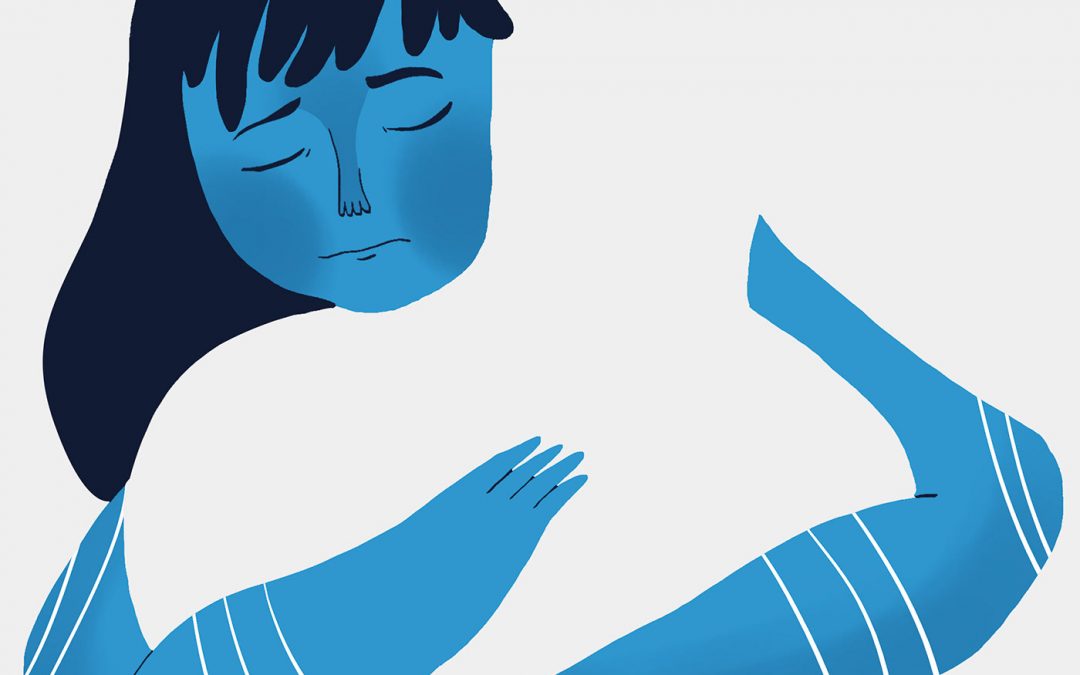Long-distance relationships aren’t easy. Ever since I moved to Victoria, I’ve felt the miles between us. Summer and holidays are the only times I can see him. That time is precious, but it isn’t enough. We don’t talk as much as we used to, and when we do it’s not the same. Sometimes I feel like he’s not there for me when I need him.
I’m talking, of course, about my therapist. I’ve been without my counselor this whole semester and it’s the hardest long-distance relationship I’ve ever had to navigate. Granted, I’ve never been in a real romantic long-distance relationships before, but I think I have the same doubts and questions as everyone. Am I being needy? Am I infringing on his space? Why doesn’t he ever text first? It’s very generous for a counselor to make themselves available outside of sessions to begin with, and he’s an absolute gem for letting me keep him up to date. Still, sometimes it’s hard to be so far apart.
 The relationship between a therapist and a patient is a unique and meaningful one. They’re a person trained to help you open up, understand trauma, create goals, and better yourself. They keep you in check, they remind you when you’re falling back into bad habits. Being without that connection during an extremely stressful school period can be hard to handle.
The relationship between a therapist and a patient is a unique and meaningful one. They’re a person trained to help you open up, understand trauma, create goals, and better yourself. They keep you in check, they remind you when you’re falling back into bad habits. Being without that connection during an extremely stressful school period can be hard to handle.
Now, a few people have recommended I go to see someone on campus for my mental health problems. I like to remind those people that I have gone to the same therapist for five years, and it took a lot of time and coaxing for me to tell him about certain things in my life. The problem isn’t that I don’t think I need help, the problem is that I’ve opened myself up to one specific person, and in doing so put myself in a vulnerable position. The thought of putting myself in that position once again, with a whole new person, is terrifying.
It takes courage to open up to someone. It takes trust. It’s hard to walk into a counselor’s office for the first time, bringing an entire life with you.
When it’s hard for me to be mindful of my own behaviour, I try to remember what my therapist would tell me. He’d say take care of my mental health foundation: watch my sleep, eating, exercising, use my supports, do things I enjoy and set realistic goals.
My therapist, even half a country away, makes me aware of my negative thinking before it manifests into actions. Kind of like how face washes are meant to cleanse your pores before the acne flares up. It’s a proactive measure. If I’m actively trying to better myself, I’m a lot less likely to fall into a slump.
washes are meant to cleanse your pores before the acne flares up. It’s a proactive measure. If I’m actively trying to better myself, I’m a lot less likely to fall into a slump.
The first step is always scary, but talking about your struggles— with a new counselor, a friend, a family member, or even over email with a long-distance therapist— is the best thing a person can do to lift themselves out of a rut, and start to feel better.
The views expressed in this blog are my own, and do not necessarily reflect the policies or views of the University of Victoria. I monitor posts and comments to ensure all content complies with the University of Victoria Guidelines on Blogging.
